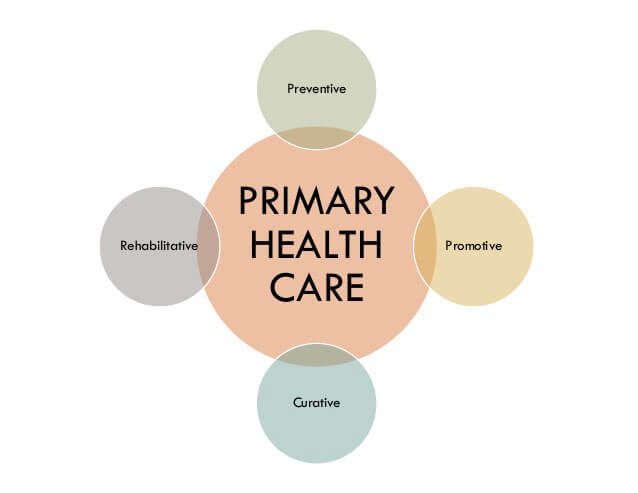What is the full form of PHC
PHC: Primary Health CarePHC Stands for Primary Health Care. For the majority of people, primary healthcare is where they initially seek medical attention. Primary health care professionals include community pharmacists, optometrists, and dentists, although they are mostly supplied by general practitioners (GPs). Regardless of the patient's issue, the goal is to offer an easily navigable path to care. The focus of primary healthcare is on treating the whole person rather than a single condition. This means that professionals practicing in general practice are generalists rather than specialists in a specific disease area, addressing a wide range of medical, psychological, and social problems. PHC was founded on principles of social justice, equity, cooperation, and involvement. It is predicated on the understanding that every human being, regardless of status, has a fundamental right to the enjoyment of the best degree of health that is reasonably feasible. PHC tackles the more extensive health factors and concentrates on the entire and interconnected elements of physical, mental, and social health and wellbeing. Instead of only treating a handful of specific disorders, it offers whole-person care for health requirements across the lifespan.  HistoryIn the 1970s, when the basic needs approach to social development gained popularity, the idea of primary health care (PHC) emerged. According to Newell (1975), WHO and UNICEF developed the primary health care strategy as a means of achieving Health for all by the year 2000. This strategy was informed on the one hand by the disappointments experienced in implementing the basic health services approach, on the other hand by the remarkable progress made in improving health in China, as well as by the successes of many small, community-based health care initiatives that were largely inspired by NGO's. Objectives- Providing better health services to everyone is the ultimate goal of primary healthcare.
- Lowering social and racial health disparities and exclusion (universal coverage reforms)
- Arranging health care in accordance with people's wants and needs (service delivery reforms)
- Integrating health across all sectors (reforms to public policy); developing collaborative methods of policy discourse (reforms to leadership), and boosting stakeholder involvement.
Importance- In order to provide quality, adequate services as close as practical to people's daily environments, primary health care guarantees that patients receive everything from promotion and prevention through treatment, rehabilitation, and palliative care.
- In order to improve people's physical and mental health as well as their social well-being, PHC is the most efficient, inclusive, egalitarian, and cost-effective strategy available.
- PHC investments enhance fairness and access, healthcare performance, health system accountability, and health outcomes.
- PHC is essential for improving the health systems' ability to withstand crisis conditions, be proactive in spotting epidemic warning signals, and be ready to act quickly in the face of spikes in service demand.
Key Facts- The additional funding needed to provide a more comprehensive array of healthcare services to meet the PHC targets is from US$ 200 to US$ 370 billion annually.
- Due to out-of-pocket medical expenses that consume 10% or more of household income, some 930 million people globally are at risk of living in poverty.
- By 2030, implementing primary health care (PHC) interventions at a larger scale in low- and middle-income nations might prevent 60 million deaths and extend the average life expectancy by 3.7 years.
- Countries vowed to promote primary healthcare at the UN high-level UHC meeting in 2019.
- Every nation should devote an additional 1% of its GDP, or a portion thereof, to PHC, according to a recommendation by the World Health Organization.
Primary Health Care ServicesPrimary healthcare providers offer a range of services, including: - The diagnosis, management, and care of patients with health issues.
- Encouraging health and preventing health issues
- Early management of persistent and chronic diseases.
|
